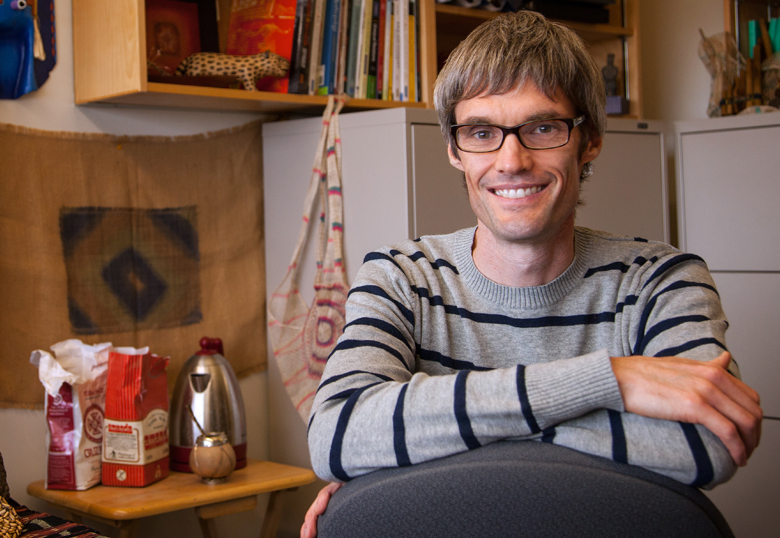A move by the government of Ecuador to preserve the Amazon rainforest and protect the rights of its inhabitants may ultimately do more harm than good, says University of Lethbridge professor Dr. Patrick Wilson.

The Chair of the U of L’s Department of Anthropology has been investigating the seemingly progressive constitutional reforms introduced in the South American country in 2008, and their potential impact on indigenous peoples. Essentially, the new constitution aimed to enshrine in law respect for the rights of nature; the principle of Sumak Kawsay, an ancient indigenous concept meaning living in harmony with each other and the environment; and recognition of the land of the Amazonian peoples as circumscribed indigenous territories, or CTIs, which would ostensibly offer them a pathway to autonomous social and economic development.
Fast-forward to 2014: CTIs have not yet become law, meaning indigenous peoples do not have formal control over their lands. At the same time, the national government has allowed the Amazon’s natural resources to be increasingly exploited, and international companies are engaging in more mining, logging and oil exploration. Historically, Wilson says, indigenous peoples united to oppose such extractive activity in the Amazon in general. CTIs would carve up indigenous territories into smaller, more defined units, which could narrow the scope of indigenous protest, and delegitimize the efforts of those protesting against actions falling outside their own CTI. As Wilson asserts, these trends go against the constitutional articles promoting the conservation of nature and the legitimacy of indigenous people’s lands.
“Although these things are inscribed in the constitution, there are no corresponding laws. So people are still trying to figure out exactly how they are going to work, if they’re going to work,” Wilson says. “The contradictions are becoming apparent now. At the same time that [Ecuadorean president Rafael Correa] says, “You know, we need to embrace these principles of the rights of nature,” he’s expanding mining operations, and that disproportionately occurs on indigenous lands.”
Wilson’s interest in the welfare of Amazonian peoples and land dates back to his mid-1990s graduate school research on the subject. Over the last 20 years, he has gained an in-depth understanding of their land rights issues and advocacy efforts, and along the way, has formed close friendships with many of them. His current research is the outcome of his ongoing collaboration with the Quijos Nation, an Ecuadorian Amazonian indigenous nationality of about 15,000 people, and two of the nation’s leaders, Bertilda Alvarado Mamallacta and Gonzalo Alvarado Tanguila, are co-authors with him in his forthcoming research article, “Circuncripciones Territoriales Indígenas and the Politics of Nature in Ecuador’s Amazon.”
The paper discusses issues such as the lack of legal reinforcement behind the country’s new constitution, and how the government’s economic development agenda clashes with its stated aim of protecting indigenous lands. It also looks at a key assumption behind the constitution’s objectives: that indigenous peoples are inherently driven to protect the environment. Wilson says this assumption is driven by the long-perpetuated myth of the noble savage as being intrinsically in harmony with nature, and doesn’t acknowledge the complex realities and economic aspirations of Amazonian indigenous peoples.
“Indigenous peoples do tend to have a special relationship with their natural surroundings and tend to live in greater harmony with nature than other people do; yet, this does not necessarily mean that relationship equates to Western notions of environmentalism,” Wilson says.
When his research publishes, Wilson hopes it will be useful to human rights and environmental NGOs working in the region, and to the indigenous peoples themselves as a tool for self-advocacy. He says shining a light on these issues can offer up useful lessons to the international community, since natural resource harvesting worldwide usually affects marginalized populations.
“Extractive development disproportionately occurs on land of disenfranchised peoples,” Wilson says. “These kinds of things cross national boundaries...so we can reflect on our own practices by looking at what’s going on elsewhere.”

